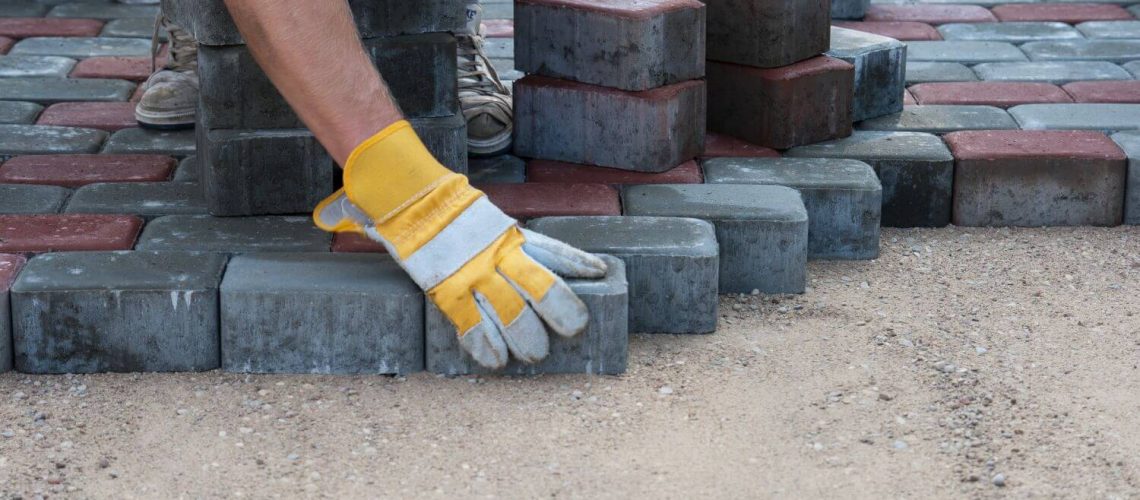When carrying out any type of work outdoors, there is always the element of risk where the weather is concerned. You can never be too sure how the day will pan out when it comes to the weather. This is especially true when installing pavers.
Pavers can instantly transform the exterior of your home, but what happens if it rains when installing pavers, and will the job be ruined?
If you are installing pavers yourself, and the weather looks like rain could be imminent, then it can be tempting to put it off until you have dryer weather. But what if you have booked professionals to come and install your pavers for you, and it just so happens to rain on the day they are due?
Luckily professional paver installers will be aware of the different types of weather they can work in, and the effects rain can have on paving installation.
What Happens to Hardscape when It Rains?
Rain can undoubtedly be a stumbling block during the paver installation process, but not to the extent it prevents the operation from being completed completely. In particular, this holds true when it comes to drizzle or light rain. While working in such weather circumstances, much of the job can be accomplished without incident. This includes excavation and drainage installation, spreading and leveling sub-base material, installing borders and curbs, and even laying the pavers themselves.
Heavy rain, on the other hand, creates a more difficult challenge than light rain. Heavy rain not only creates uncomfortable working circumstances but can also cause significant delays in practically every stage of the installation process.
Most commonly used methods of joining pavers are just unfeasible and will not produce high-quality results if they are carried out in such challenging conditions. Because too much water can cause mortar and concrete to lose their original qualities and become even weaker throughout the installation process, it is vital to use a tougher combination during the installation process.
When you scrape some wet sand and squeeze it, you should see very little or no water coming from the scratch. Preventing work until the rain has stopped and the material has dried is preferable, but bear in mind that working on a hot summer day may not be a good option either as the pavers can get too hot.
In General, What Should You Do If It Rains During Home Project Installation?
Your expert pavers will be aware of the effects of rain on the base materials they are using.
As a general guide, if you experience heavy rainfall, even for short periods, it will be best to delay the work for another time until it is drier.
However, for lighter rainfall, you will likely have nothing to worry about and can carry on working on your installation.
If you are concerned about any issues when installing pavers in the rain or during wet periods, it might be best to consult with expert pavers such as Sequoia Stonescapes to get the job done well and avoid any complications.

